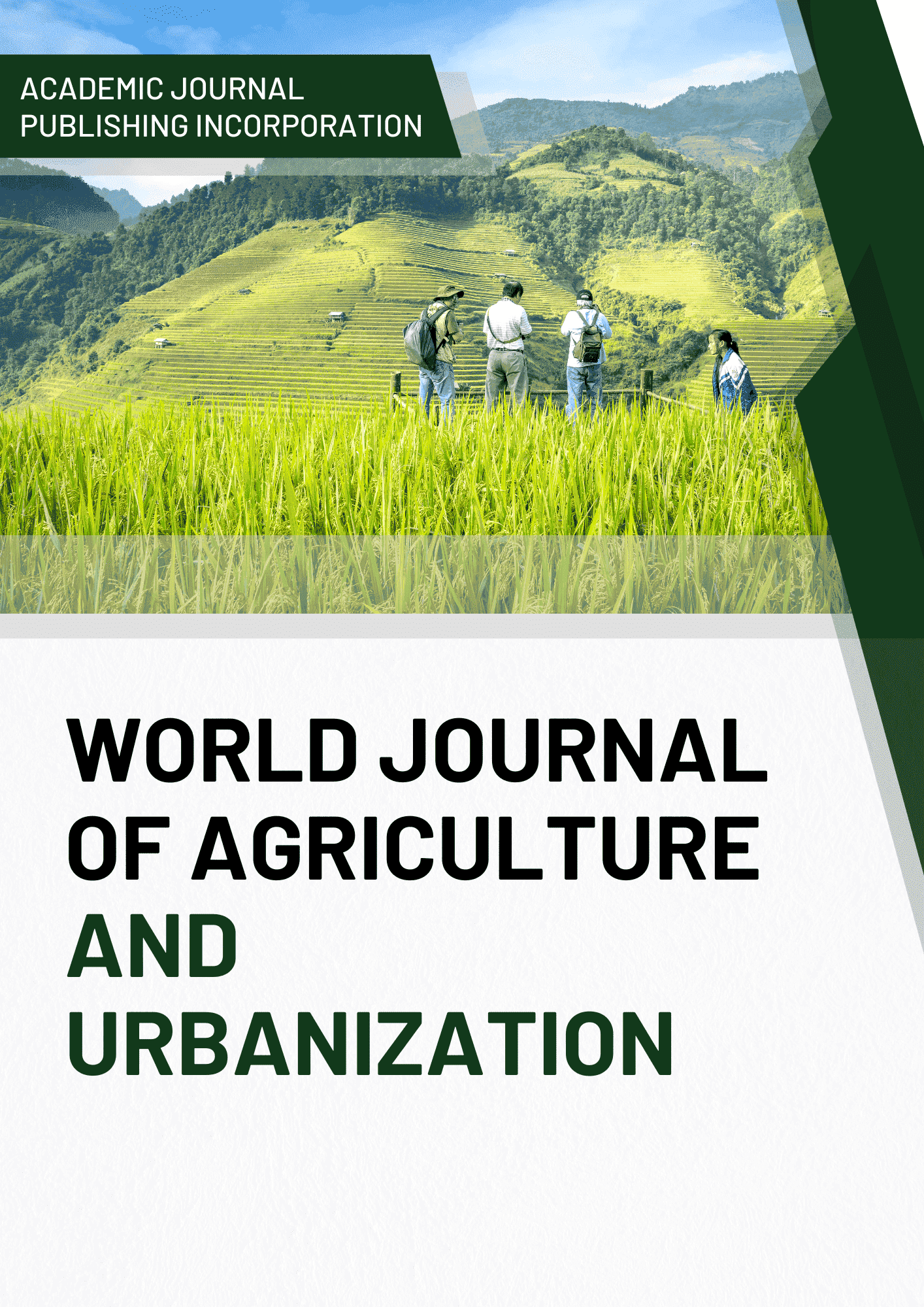Effect of Dietary Inclusion Levels of Moringa Olerifera Oil on the Growth Performance and Nutrient Retention of Broiler Starter Chicks
DOI:
https://doi.org/10.51699/wjau.v1i1.2Keywords:
Moringa oleifera oil, broilers, antibiotics, phytochemicals, gas chromatographyAbstract
An experiment was carried out to examine the effect of dietary inclusion of Moringa oleifera oil (MOO) on the growth performance and nutrient retention of broiler chicks. A total of 180-day- old broiler chicks (Arbor acre) of mixed sex were randomly allotted into six dietary treatments of 30 birds per treatment; each treatment was further divided into 3 replicates consisting of 10 birds each in a completely randomized design. Basal diet was formulated to meet the nutritional requirements of broiler chicks, feed and clean water were given ad libitum throughout the experiment which lasted for 28 days. Birds in treatment 1 (T1) were fed basal diet with Oxytetracycline at 1.5g/kg feed while birds in T2, T3, T4, T5 and T6 were fed basal diet mixed with MOO at 0.1, 0.2, 0.3, 0.4 and 0.5 mL/kg feed respectively. Results on gas chromatography- mass spectrometry (GC-MS) revealed the presence of 17 bioactive compounds which accounted for 70.72 %. The major compounds identified in MOO are: β-caryphyllene (19.02 %), β-myrcene (16.08 %), carvenone (10.11 %) and α-cubebene (7.11 %) respectively. Data on average daily weight gain, average daily feed intake and feed conversion ratio were not significantly (P˂0.05) different among the treatments. Highest mortality was recorded among birds in T1 (0.33 %) followed by T2 (0.01 %) none was recorded in the other treatments (P˂0.05). Results on nutrient retention (dry matter, crude protein, crude fibre, ether extracts and nitrogen free extracts) were influenced by the dietary inclusion of MOO. It can be concluded that MOO could be fed to broilers up to 0.5 mL per kg feed without causing any negative effect on the performance of birds.
Downloads
Published
How to Cite
Issue
Section
License
The work simultaneously licensed under a Creative Commons Attribution 4.0 International License
You are free to:
- Share — copy and redistribute the material in any medium or format
- Adapt — remix, transform, and build upon the material for any purpose, even commercially.
The licensor cannot revoke these freedoms as long as you follow the license terms.
Under the following terms:
-
Attribution — You must give appropriate credit, provide a link to the license, and indicate if changes were made. You may do so in any reasonable manner, but not in any way that suggests the licensor endorses you or your use.
- No additional restrictions — You may not apply legal terms or technological measures that legally restrict others from doing anything the license permits.









